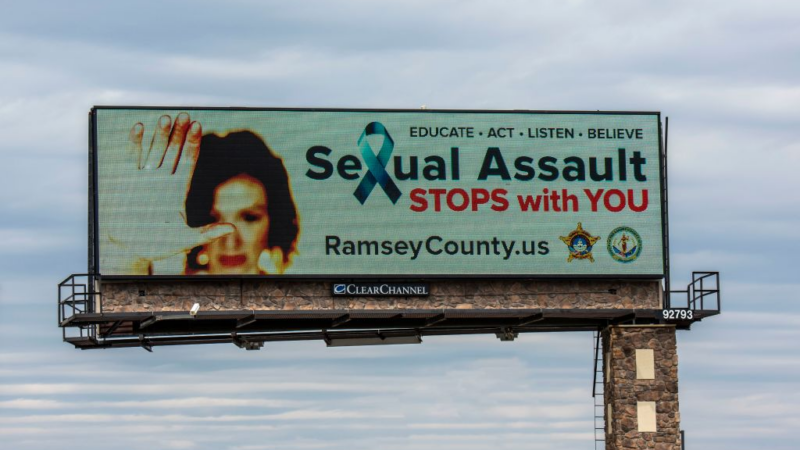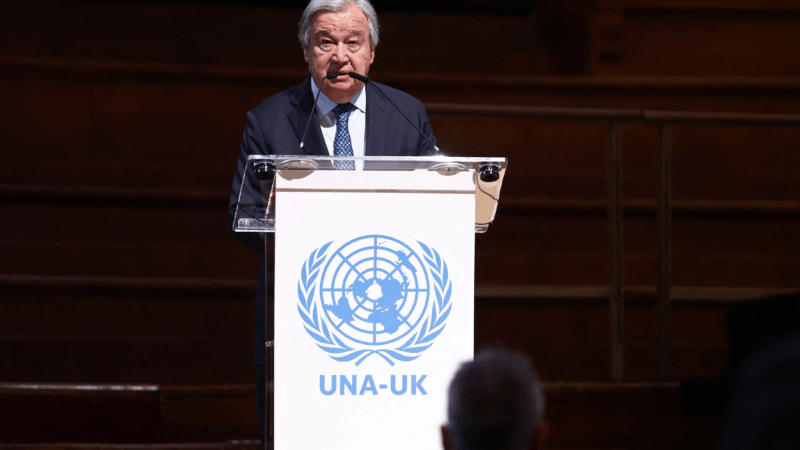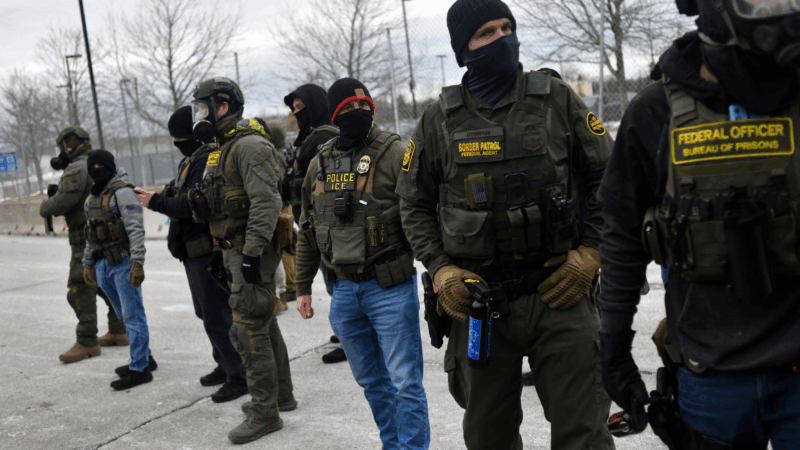Rape crisis centers see funding delays amid Trump administration spending upheaval
A disruption in federal funding has imperiled the work of community groups that run rape crisis centers and programs aimed at preventing sexual violence.
It’s just one example of the confusion and funding troubles affecting some social and health services since the Trump administration began scrutinizing spending.
Some groups have already begun to cut staff and limit the work they do.
The funding comes from the Centers for Disease Control and Prevention as part of the Rape Prevention and Education Program, which awards the grants every five years.
The new grant cycle was set to begin on Feb. 1, but the money never arrived, says Terri Poore, policy director at the National Alliance to End Sexual Violence in Washington.
“I am worried this is having a very real-world impact on anti-sexual violence work,” she says. “Nobody knows what is causing the delay and how long it will be.”
The impact of the funding disruption will vary by state.
The CDC grants are funneled through state health departments, which then distribute that money to nonprofits that run programs aimed at stopping sexual violence in their comunities.
While some states have reserves that can help keep programs afloat for now, others don’t have that cushion, she says.
For example, community groups in Texas are already dealing with the fallout.
“We have some programs that are actually starting to lay people off,” says Rose Luna, CEO of the Texas Association Against Sexual Assault, which receives the grant funding and coordinates with others groups across the state.
“We anticipate more the longer that this goes on,” she says.
The CDC program is authorized through the Violence Against Women Act, originally passed by Congress in the mid ’90s.
“We are hoping to still get this funding and that it’s just a hiccup,” says Rachel West, prevention and community development director for the Nebraska Coalition to End Sexual and Domestic violence.
West says without these funds, three programs in her state will have to stop their work on sexual violence prevention in schools and colleges, the hospitality industry, and employee training, for example.
Around the country, funding supports evidence-based strategies to prevent sexual violence. That includes “conducting hot-spot mapping and improving safety and monitoring in schools” and “ensuring women have adequate work supports such as safe and affordable childcare and paid family leave policies,” according to the CDC’s website.
Poore says the CDC has not communicated why the funds are being withheld, but hopes there’s a “simple solution.” Nevada is the only state that she’s heard from that has received notice that its funds have been awarded.
A CDC spokesperson referred NPR to the Office of Management and Budget for comment, which has not yet responded to a request for comment.
Luna says groups in her state that depend on this funding “are not sure how to handle the uncertainty,” she says.
“What’s at stake here are life-saving programs and information and messaging and education for communities in Texas.”
Edited by Carmel Wroth.
High-speed trains collide after one derails in southern Spain, killing at least 21
The crash happened in Spain's Andalusia province. Officials fear the death toll may rise.
United Nations leaders bemoan global turmoil as the General Assembly turns 80
On Saturday, the UNGA celebrated its 80th birthday in London. Speakers including U.N. Secretary-General António Guterres addressed global uncertainty during the second term of President Trump.
Parts of Florida receive rare snowfall as freezing temperatures linger
Snow has fallen in Florida for the second year in a row.
European leaders warn Trump’s Greenland tariffs threaten ‘dangerous downward spiral’
In a joint statement, leaders of eight countries said they stand in "full solidarity" with Denmark and Greenland. Denmark's Prime Minister Mette Frederiksen added: "Europe will not be blackmailed."
Syrian government announces a ceasefire with the Kurdish-led Syrian Democratic Forces
Syria's new leaders, since toppling Bashar Assad in December 2024, have struggled to assert their full authority over the war-torn country.
U.S. military troops on standby for possible deployment to Minnesota
The move comes after President Trump again threatened to invoke the Insurrection Act to control ongoing protests over the immigration enforcement surge in Minneapolis.







